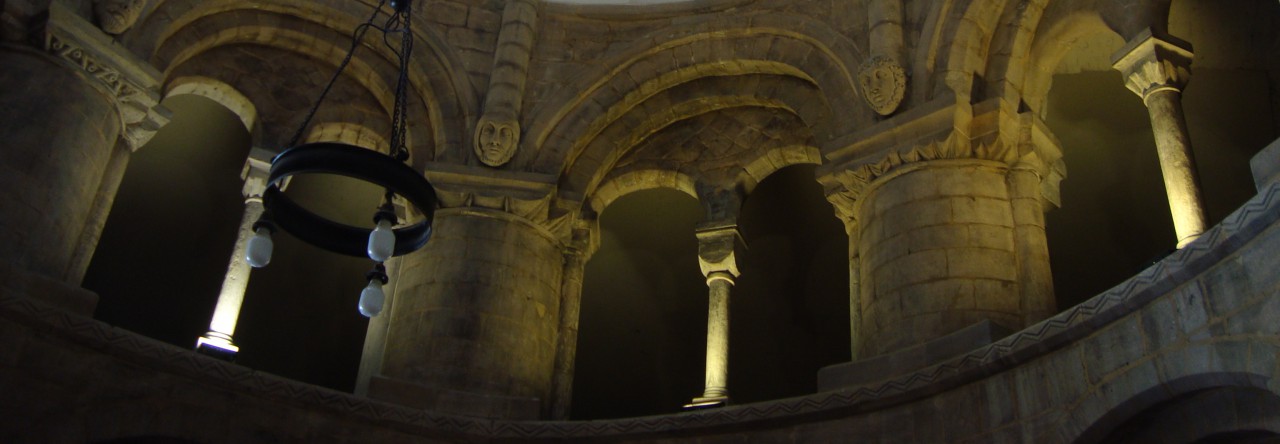Inverted commas 5: Will Stanton’s Christmas

Christmas Eve. It was the day when the delight of Christmas really took fire in the Stanton family. Hints and glimmerings and promises of special things, which had flashed in and out of life for weeks before, now suddenly blossomed into a constant glad expectancy. The house was full of wonderful baking smells from the kitchen, in the corner of which Gwen could be found putting the final touches to the icing of the Christmas cake. Her mother had made the cake three weeks before; the Christmas pudding, three months before that.
In Susan Cooper’s The Dark is Rising (1973) Will Stanton’s family is preparing for the great day in their little corner of England. The conifer, grown locally, is fetched into the house:
When they carried the tree ceremonially through the front door, the twins seized it with cross-boards and screwdrivers, to give it a base. At the other end of the room Mary and Barbara sat in a rustling sea of coloured paper, cutting it into strips, red, yellow, blue, green, and gluing them into interlocked circles for paper-chains.
For them, as for many families, the decorating of the tree is left to the night before, all such ornamentation remaining until Twelfth Night when the Feast of the Epiphany (marking the visit by the Three Magi) takes place.
Out of the boxes came all the familiar decorations that would turn the life of the family into a festival for twelve nights and days: the golden-haired figure for the top of the tree; the strings of jewel-coloured lights. Then there were the fragile glass Christmas-tree balls, lovingly preserved for years. Half-spheres whorled like red and gold-green seashells, slender glass spears, spider-webs of silvery glass threads and beads; on the dark limbs of the tree they hung and gently turned, shimmering.
All of the foregoing sounds like many a traditional Christmas. The next day there will be the visit to the village church for the Christmas Day service. But little else is overtly religious — the tree, the yule log, the preparations for feasting, the paper chains and greenery strewn around, all smack of a pagan midwinter festival more than the advent of a deity. At the local Manor the songs remain resolutely heathen in inspiration: a traditional wassailing song, the lullaby known as the Coventry Carol, Good King Wenceslas based on a medieval Bohemian legend.
And then Will later will find himself reading lines from The Book of Gramarye, verses that at first sight appear traditional but in truth are out of time:
He that sees blowing the wild wood tree,
And peewits circling their watery glass,
Dreams about Strangers that yet may be
Dark to our eyes, Alas!
There are hints that old Welsh myths are interwoven here, in lines translated by Robert Graves from his reconstruction of the sixth-century Cad Goddeu or ‘The Battle of the Trees’, a Welsh poem from The Book of Taliesin which he included in the mythic study The White Goddess:
I have plundered the fern | Through all secrets I spie;
Old Math ap Mathonwy | Knew no more than I.
And when Will encounters Herne the Hunter in Windsor Forest, the secrets of the battle between Light and Dark will be laid bare. In The Dark is Rising the author emphasises that the time of the midwinter solstice and the Twelve Days of Christmas are a magical and significant time of year.
No doubt this is one of the reasons the Church chose this period to celebrate the advent of Christ, whose actual birthday we are never told and will have no real way of knowing: throughout the northern hemisphere there are old traditions which some of us moderns consider essentially ‘Christian’ in basis but which in fact have long been there to mark the change of season and the turning of the year, the days of darkness turning towards the light.
But of course you all knew that.
A review of The Dark is Rising will appear in due course but, in the meantime, may I wish everybody the very best of Christmases, however you celebrate it!








